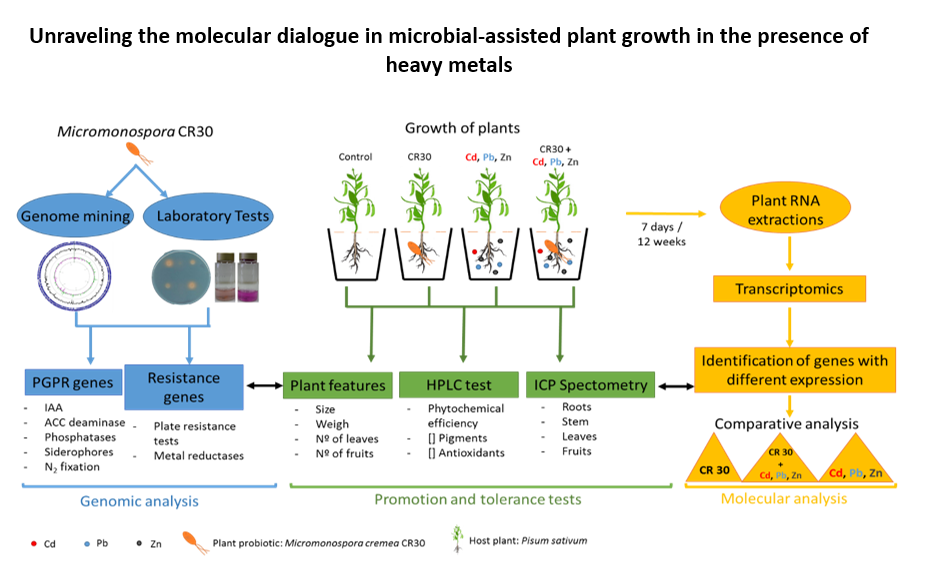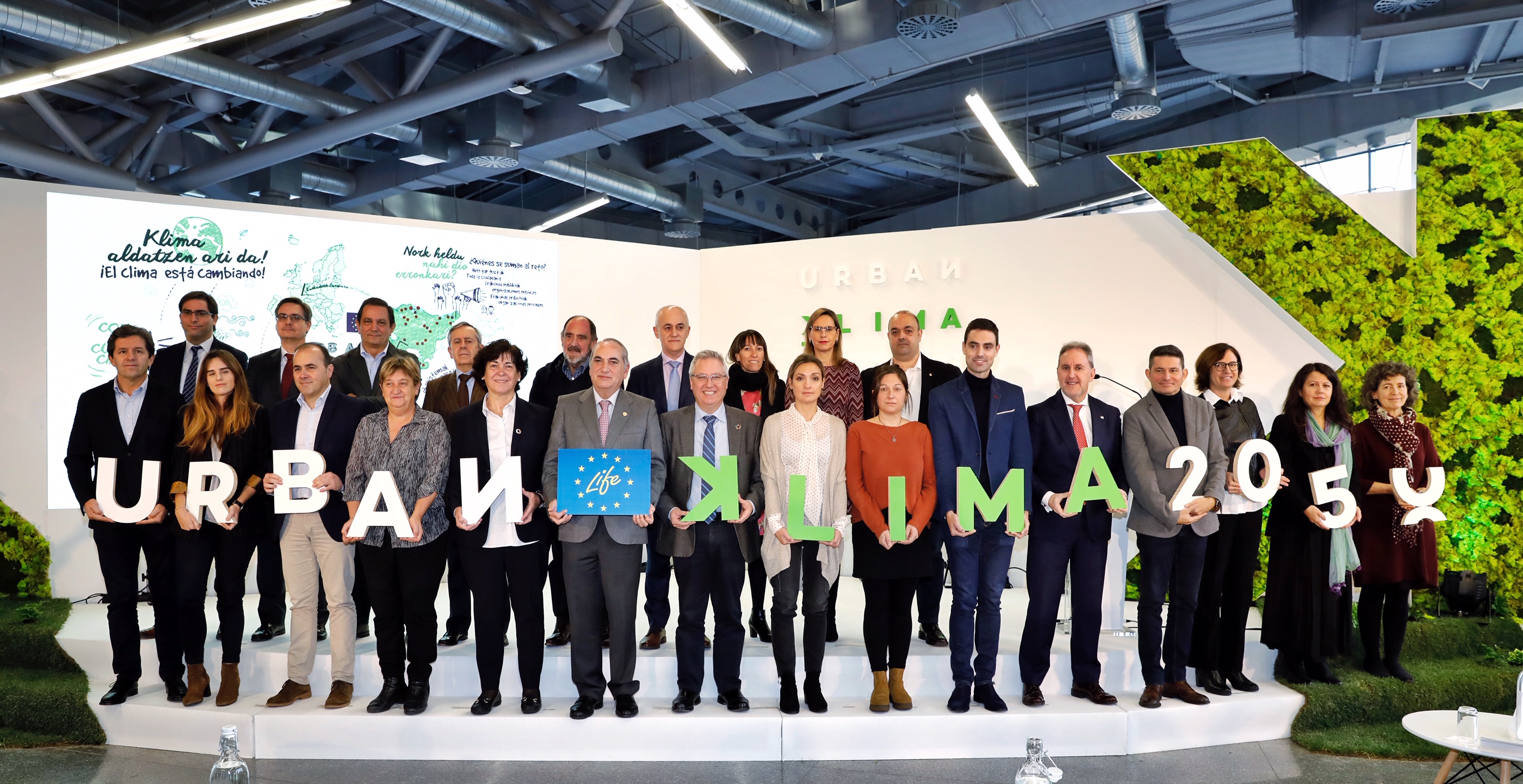
Agriculture is currently confronting an increasing human population and limitations of soil use due to, among other reasons, pollution levels above food safety threshold values. Some agricultural practices increase the heavy metal content (HM) of agricultural soil, representing an important threat for the European agricultural development. The use of microorganisms as plant growth promoters has been increasingly studied for a number of years, but it has only recently been proposed to improve plant metal tolerance. Regrettably, plant-microorganism-pollutant interactions are still poorly understood and the molecular underlying mechanisms are mostly unknown. The abovementioned challenges for agricultural production require the study of these mechanisms to better promote a more efficient and sustainable agriculture. This project will venture into new unchartered territory by focusing on the molecular interactions between a probiotic actinobacterium (Micromonospora cremea) and its host, Pisum sativum (garden pea), in the presence of HMs. We will evaluate the capacity of M. cremea CR30 to improve plant tolerance to HM polluted soils, in addition to unraveling the molecular dialogue during the first and late steps of their interaction. Early step interactions are crucial in plant promotion and protection against external stresses, like pollution by HM. Here, we propose the use of new -omic technologies to study these molecular interactions between plants and microorganisms under metal stress, providing a new pathway for an improved soil management. This project addresses a crucial objective in food security, the development of sustainable agricultural practices to control potentially adverse HM effects on plant health.




